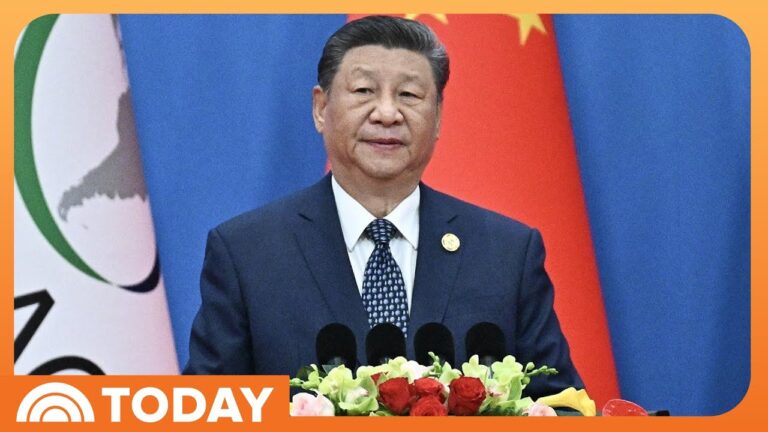Video at the bottom!
The segment opens with a warm acknowledgment of gratitude, leading to a discussion about a significant podcast that the hosts are enthusiastic about. Transitioning smoothly, the focus shifts to the geopolitical landscape, specifically regarding recent developments concerning China. The host introduces a report by NBC’s Janis Mackey Frayer, who is in Beijing to cover the implications of Secretary of State Marco Rubio’s announcement about revoking visas for Chinese students in the United States.
Frayer elaborates on the bold move by the Trump administration, suggesting it is a significant step towards tightening immigration policies related to international students, particularly those with ties to the Chinese Communist Party or studying critical fields. This action, she notes, could diminish the ability of prospective students to obtain U.S. visas and has already led to procedural changes at U.S. embassies concerning new visa appointments.
The Chinese government’s response to these developments has been one of strong condemnation. Officials have lodged a diplomatic protest, labeling the U.S. actions as unreasonable and indicative of a broader targeting of China. Students on the ground express their fears about how these changes may impact their educational journeys, with a hint of irony noted in the mention of Xi Jinping’s daughter having studied at Harvard under a pseudonym.
The segment highlights the substantial number of Chinese students—over 275,000—enrolled in U.S. universities and emphasizes the repercussions of visa restrictions not only on education but also on economic factors like university funding and research capabilities.
The report delves into the potential legal ramifications of these measures, referencing a recent federal court ruling that temporarily blocked a similar ban on international students at Harvard, citing immediate harm to the university.
The discussion then shifts back to the implications of targeting Chinese students within the broader context of U.S.-China relations and the ongoing trade war. The reporter underlines long-standing national security concerns surrounding China’s recruitment of scientists trained in the U.S. for espionage or intellectual property theft. She notes that this recent move adds tension to the already complicated trade relationship, especially after what appeared to be a temporary ceasefire in tariff disputes and a willingness to engage in dialogue.
In summary, the coverage highlights the intersection of education, immigration policy, and international relations, painting a complex picture of the current geopolitical climate involving the U.S. and China.


